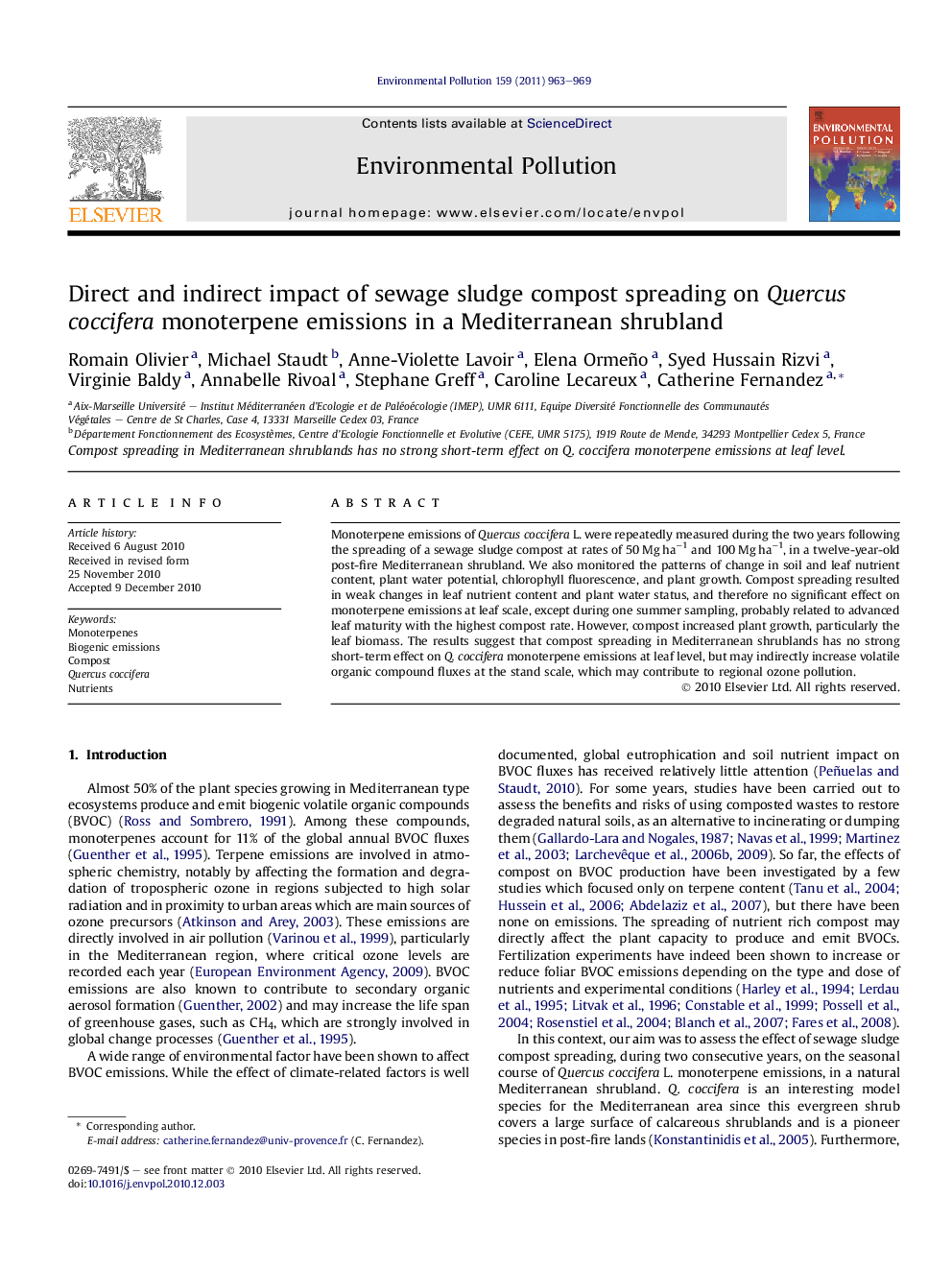| Article ID | Journal | Published Year | Pages | File Type |
|---|---|---|---|---|
| 4424848 | Environmental Pollution | 2011 | 7 Pages |
Monoterpene emissions of Quercus coccifera L. were repeatedly measured during the two years following the spreading of a sewage sludge compost at rates of 50 Mg ha−1 and 100 Mg ha−1, in a twelve-year-old post-fire Mediterranean shrubland. We also monitored the patterns of change in soil and leaf nutrient content, plant water potential, chlorophyll fluorescence, and plant growth. Compost spreading resulted in weak changes in leaf nutrient content and plant water status, and therefore no significant effect on monoterpene emissions at leaf scale, except during one summer sampling, probably related to advanced leaf maturity with the highest compost rate. However, compost increased plant growth, particularly the leaf biomass. The results suggest that compost spreading in Mediterranean shrublands has no strong short-term effect on Q. coccifera monoterpene emissions at leaf level, but may indirectly increase volatile organic compound fluxes at the stand scale, which may contribute to regional ozone pollution.
Research highlights► Compost spreading had weak effects on leaf terpene emissions of Quercus coccifera. ► Compost spreading increased leaf biomass of Q. coccifera. ► Compost spreading indirectly increased Q. coccifera biogenic emissions, at the landscape scale.
